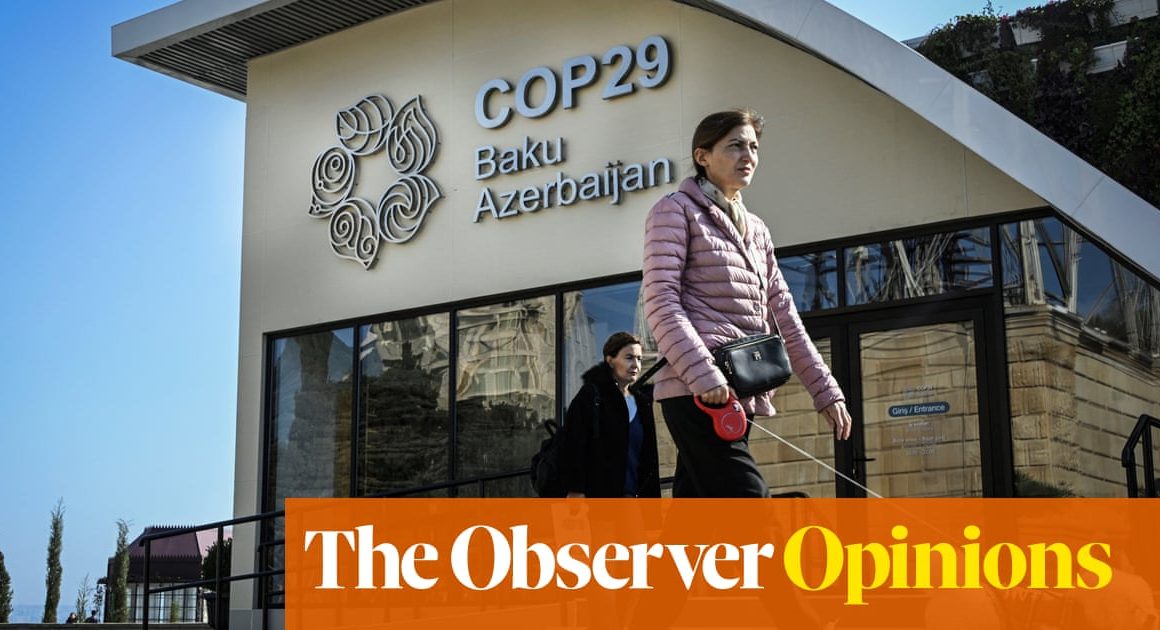VW warns it has ‘a year, maybe two’ to adapt to lower demand
German carmaker Volkswagen has warned its staff that it has “one, maybe two” years to cut its spending and adjust its output to lower demand, as it ponders shutting factories in Germany for the first time.
At a briefing with staff this morning, VW warned that the company needs to make deep cost cuts if it is to succeed in the transition to electric cars.
Chief financial officer Arno Antlitz told workers, gathered at Volkswagen’s Wolfsburg headquarters:
“If we carry on like this, we won’t succeed in the transformation.
It is our joint responsibility to improve the cost efficiency of the German sites.”
Antlitz warned that Europe’s car market had shrunk after the pandemic and the company was facing a shortfall in demand of about 500,000 cars, equivalent to about two plants.
But the meeting was stormy – Reuters reports that staff whistled and shouted “Auf Wiedersehen” when Antlitz took to the stage.

On Monday, VW warned that it was considering shutting two German factories, in what would be the carmaker’s first closures ever in its home country.
VW’s problems show the difficulties traditional European carmakers are having in switching from profitable but polluting petrol and diesel cars to cleaner but currently less profitable electric vehicles.
VW’s unions, though, are resisting efforts to close plants in Germany.
Daniela Cavallo, head of Volkswagen’s works council, told workers at the carmaker’s main plant in Wolfsburg that management had failed to do its job and needed to come up with a plan without shutting factories.
Cavallo pledged:
“With me … there will be no plant closures in this country.”
Key events
Photos: VW workers protest about factory closure plans
Volkwagen staff held a protest before the start of today’s works meeting, where they were warned that time is running out to turn its fortunes around.
Around 16,000 workers squeezed into the packed hall, Reuters reports, with another 5,000 outside watching on a screen,
VW warns it has ‘a year, maybe two’ to adapt to lower demand
German carmaker Volkswagen has warned its staff that it has “one, maybe two” years to cut its spending and adjust its output to lower demand, as it ponders shutting factories in Germany for the first time.
At a briefing with staff this morning, VW warned that the company needs to make deep cost cuts if it is to succeed in the transition to electric cars.
Chief financial officer Arno Antlitz told workers, gathered at Volkswagen’s Wolfsburg headquarters:
“If we carry on like this, we won’t succeed in the transformation.
It is our joint responsibility to improve the cost efficiency of the German sites.”
Antlitz warned that Europe’s car market had shrunk after the pandemic and the company was facing a shortfall in demand of about 500,000 cars, equivalent to about two plants.
But the meeting was stormy – Reuters reports that staff whistled and shouted “Auf Wiedersehen” when Antlitz took to the stage.
On Monday, VW warned that it was considering shutting two German factories, in what would be the carmaker’s first closures ever in its home country.
VW’s problems show the difficulties traditional European carmakers are having in switching from profitable but polluting petrol and diesel cars to cleaner but currently less profitable electric vehicles.
VW’s unions, though, are resisting efforts to close plants in Germany.
Daniela Cavallo, head of Volkswagen’s works council, told workers at the carmaker’s main plant in Wolfsburg that management had failed to do its job and needed to come up with a plan without shutting factories.
Cavallo pledged:
“With me … there will be no plant closures in this country.”
Reuters: UK banks brace for possible tax hikes
UK-based banks are stepping up lobbying efforts against possible tax hikes in the government’s inaugural Budget on 30 October, Reuters reports.
Senior banks are concerned that Rachel Reeves could tap the banking sector to boost Britain’s finances.
Reeves is due to meet senior representatives of the banking sector in the coming days, where bankers expect a rise in taxes on lenders’ profits will be discussed, two sources have told Reuters.
Reeves could potentially increase the bank surcharge, which the sector pays on top of corporation tax.
Another option is to cut the interest paid to lenders on their Bank of England reserves. Those reserves have swelled thanks to the BoE’s quantitative easing programme, which created new money to buy assets from the banks (to encourage them to lend).
Threadneedle Street is now paying 5% interest on £700bn of bank reserves at a cost to the exchequer of £35bn a year – which is more than the £22bn ‘black hole’ the government says it has found in the public finances.
Cathay Pacific A350 fleet to resume full service by Saturday
Airline Cathay Pacific is continuing to repair its fleet of Airbus A350 planes, following the problem suffered by a flight from Hong Kong to Zurich on Monday.
Cathay says today that maintenance activity on its Airbus A350 fleet “continues to progress well”.
It has identified 15 planes that need replacement engine fuel lines – six have been repaired and are cleared to fly again.
The remaining nine aircraft will be repaired and are expected to resume operation by Saturday.
Barratt’s profits fall 75% in ‘challenging’ housebuilding market

Kalyeena Makortoff
Barratt Developments has suffered a 75% drop in annual profit and a double-digit decline in home completions after a “challenging” year for Britain’s biggest housebuilder.
The company said the past year had proved tough for the housebuilding industry and potential buyers, as cost of living pressures, much higher mortgage rates and weak consumer confidence weighed on the housing market.
Those factors hit Barratt’s annual pre-tax profits, which tumbled 75% to £171m in the year to the end of June, down from £705m a year earlier.
Barratt said it had completed 14,004 new homes over the period. While that was at the upper end of the company’s expectations, it marked an 18.6% fall on a year earlier when it completed more than 17,200 homes.
German foreign trade “facing a recession.”
Economic slowdown fears are also sweeping Germany.
The BGA trade lobby group has warned this morning that German exporters face a recession in foreign trade, as sentiment in the sector deteriorates.
The BGA are forecasting a 0.3% fall in German exports this year, while imports are set to shrink by 2%.
BGA president Dirk Jandura called the forecasts a wake-up call for the German government, adding:
“German foreign trade is facing a recession.”
After two hours of trading, the UK stock market is slipping deeper into the red.
The FTSE 100 index is now down 71 points, or 0.86%, at 8227 points, which is still a three-week low.
Tuesday’s near-10% one-day decline in Nvidia’s shares and the 3.3% drop in the Nasdaq index illustrate “the fragility of the market”, says Russ Mould, investment director at AJ Bell.
Mould adds:
“It goes to show that everything was not back to normal after markets quickly rebounded from their summer wobble, even thought it might have looked fine on the surface.”
UK company growth hits four-month high
The UK economy picked up pace in August, according to the latest poll of purchasing managers at British firms.
Activity at UK firms rose at the fastest pace since April, data firm S&P Global reports.
Higher levels of output were seen in both the manufacturing and service sectors, it says, which led to “a sustained upturn in private sector employment”.
Encouragingly, firms reported the weakest rise in input costs since November 2020, a sign that inflationary pressures are cooling.
Tim Moore, economics director at S&P Global Market Intelligence, says:
“August data highlighted a recovery in UK service sector performance as improving economic conditions and domestic political stability helped to bolster customer demand.
New business again increased at a robust pace after a lull in decision-making earlier this summer. This fuelled the fastest upturn in service sector activity since April and extended the current period of growth to ten months.
The S&P Global UK Composite PMI rose to 53.8 in August, up from 52.8 in July, while the UK services PMI has jumped to 53.7 in August, up from 52.5 in July.
Eurozone economy grows at fastest pace in three months
The Paris Olympics have helped give the eurozone economy a short-term boost, new data has confirmed.
The latest survey of eurozone purchasing managers shows that the euro area economy grew at the fastest pace in three months in August.
This was mainly due to a strong performance by France, where private sector output rose at the quickest rate since May 2022.
But, new orders, employment and business confidence across the eurozone deteriorated last month, S&P Global’s PMI survey shows, in a sign that the recovery is not robust.
The HCOB Eurozone Composite PMI Output Index increased for the first time since May to a three-month high of 51.0 in August, from 50.2 in July. Any reading over 50 signals an expansion.
Bond vigilante fears are “utter Bollchocks” after succesful UK auction
While equities take a tumble, bond prices are strengthening as investors seek out safe havens.
This is pushing down the yield, or interest rate, on UK, US and eurozone government bonds – good news for finance ministers looking to fund budget deficits.
Britain has already had good news on that front, with record-breaking demand for an auction of UK government debt yesterday.
Bill Blain, strategist at Wind Shift Capital, says the rising confidence of the market in the UK shows that the government has wider options than just austerity.
He explains that it gives chancellor Rachel Reeves a wider range of options for the October Budget.
Blain writes:
The stunning success of yesterday’s 14x covered 2040 Gilt confirms the new Labour Government has a wider range of options for the October Budget.
It nails the lies fictitious “Bond Vigilantes” having been pouring in the market’s ear – the fact is the global bond market has just demonstrated confidence in Sir Keir Starmer and Rachel Reeves.
Labour need to understand this opportunity, Blain adds:
The 2040 Gilt success directly contradicts a stream of recent articles, posts and comments in the market press alleging Bond Vigilantes (crashing minor chords and blood-thirsty scream) threaten to impose harsh controls on the new UK government by selling the bond market on any sign of fiscal wavering by the new government. These have proved utter Bollchocks.










